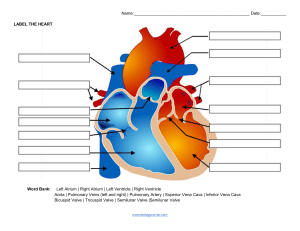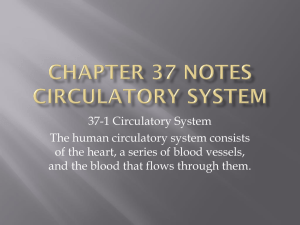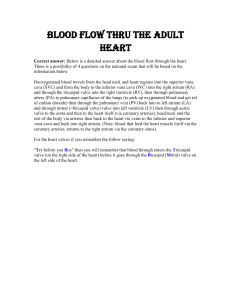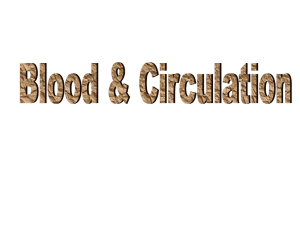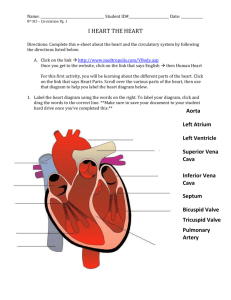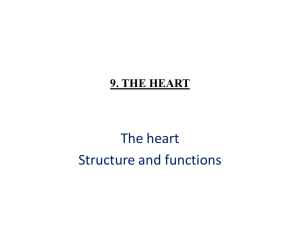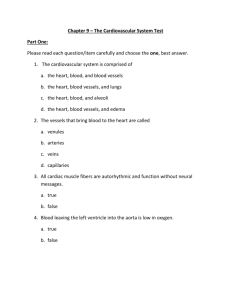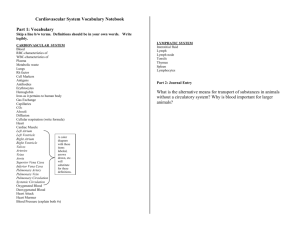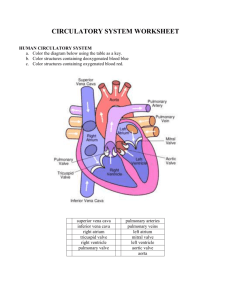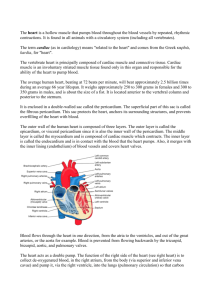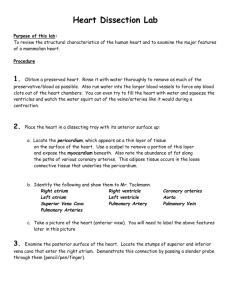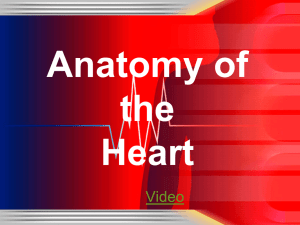Blood Circulation: Heart Diagram & Explanation
advertisement
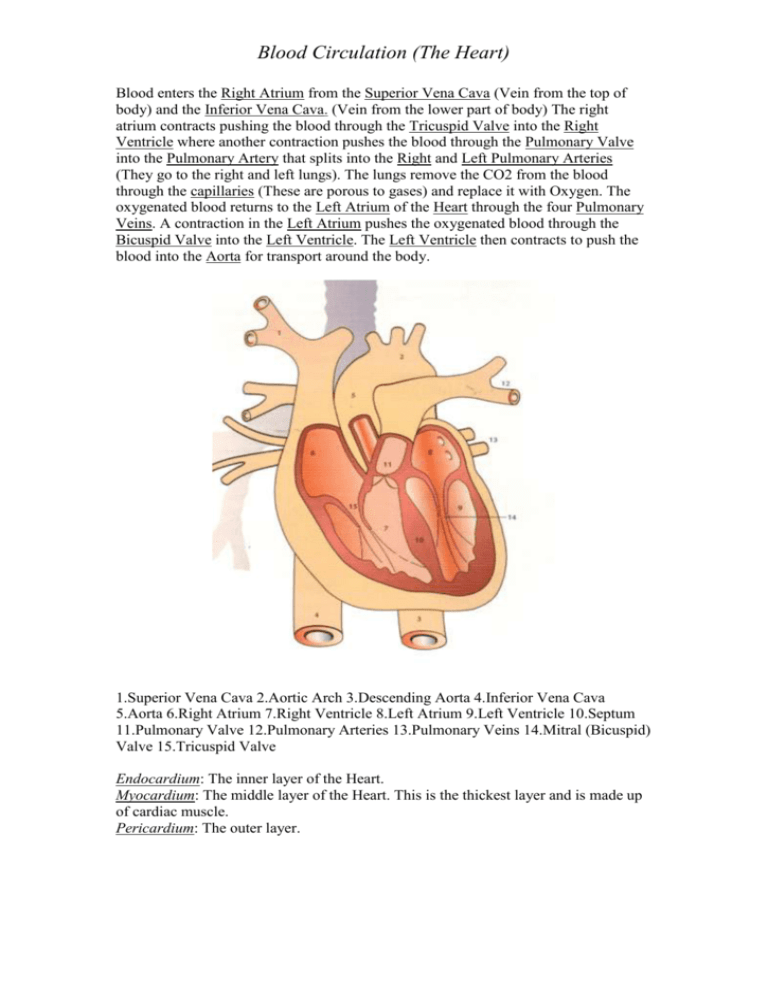
Blood Circulation (The Heart) Blood enters the Right Atrium from the Superior Vena Cava (Vein from the top of body) and the Inferior Vena Cava. (Vein from the lower part of body) The right atrium contracts pushing the blood through the Tricuspid Valve into the Right Ventricle where another contraction pushes the blood through the Pulmonary Valve into the Pulmonary Artery that splits into the Right and Left Pulmonary Arteries (They go to the right and left lungs). The lungs remove the CO2 from the blood through the capillaries (These are porous to gases) and replace it with Oxygen. The oxygenated blood returns to the Left Atrium of the Heart through the four Pulmonary Veins. A contraction in the Left Atrium pushes the oxygenated blood through the Bicuspid Valve into the Left Ventricle. The Left Ventricle then contracts to push the blood into the Aorta for transport around the body. 1.Superior Vena Cava 2.Aortic Arch 3.Descending Aorta 4.Inferior Vena Cava 5.Aorta 6.Right Atrium 7.Right Ventricle 8.Left Atrium 9.Left Ventricle 10.Septum 11.Pulmonary Valve 12.Pulmonary Arteries 13.Pulmonary Veins 14.Mitral (Bicuspid) Valve 15.Tricuspid Valve Endocardium: The inner layer of the Heart. Myocardium: The middle layer of the Heart. This is the thickest layer and is made up of cardiac muscle. Pericardium: The outer layer.
